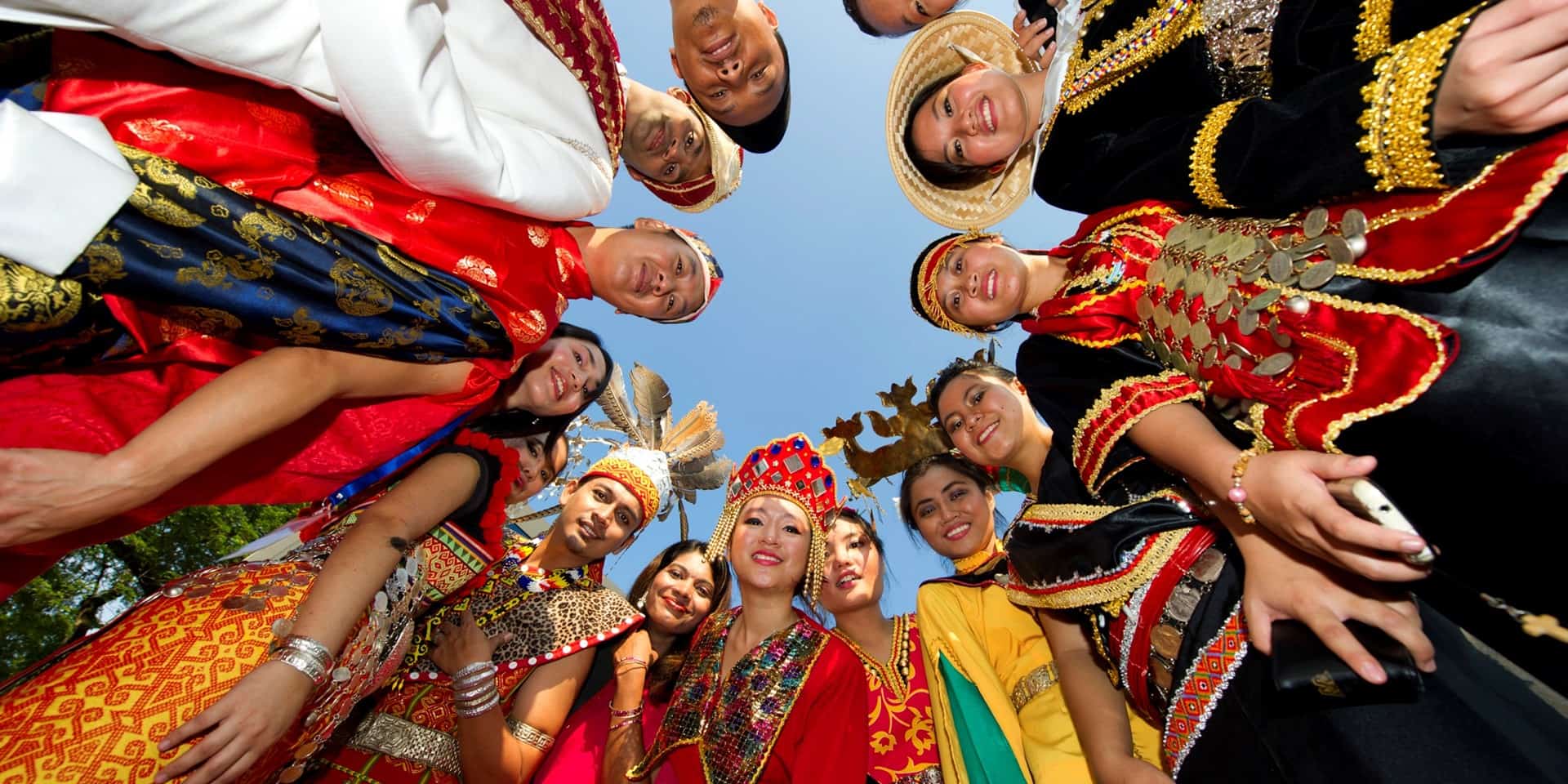In Malaysia, cultural perspectives on happiness are as diverse as its people. Each community, shaped by its unique traditions, beliefs, and values, defines joy in its own way. With a rich blend of ethnicities, Malaysia offers a vibrant tapestry of how happiness is understood and pursued.
By exploring these cultural perspectives on happiness, we gain a deeper appreciation for the richness of human experiences and the diversity that shapes our country. As Malaysia Day draws near, it’s the perfect time to reflect on how different communities find joy and express their unique cultural identities.
The Malay perspective on Happiness
Huda Ramli, 4-5th Generation Jawa, Muslim
“My grandparents migrated from Java, and over time, our beliefs evolved, adapting to life in Malaya. My parents grew up in rural kampungs but later moved to Kuala Lumpur for school, which modernized our cultural practices while still being shaped by Islam.
In Islam, we believe that true joy awaits in the afterlife, where our actions today bring reward. The concepts of ‘syurga‘ (heaven) and ‘neraka‘ (hell) guide our choices. They inspire us to fulfill religious obligations, central to our cultural perspective on happiness.
For us, happiness often emerges when we connect with with nature and our family members through social gatherings. We spend weekends at the beach or waterfalls with family, which always brings us joy. In addition, social gatherings are essential to our happiness — celebrating life events strengthens our sense of purpose and community.”
The Indian perspective on Happiness
Latha, Tamil-Malaysian
“I grew up on the east coast, practicing Hinduism, but also visiting Buddhist and Taoist temples. My family’s history on rubber estates and living in a region with a small Indian population shaped our practices, from spiritual routines to our diverse diet of Indian, Kelantanese Malay, Siamese, and Chinese food.
As a Tamil-Malaysian with roots in indentured labour in rubber estates, my community values hope, compassion, and dignified access to food. My mother, who endured harsh conditions on the rubber estates, always found happiness in the hope of better days, a strong sense of community, and the comfort of nourishing meals.
One of my favourite childhood memories involves attending temple Thiruvizhas. We offered prayers to guardian deities like Muniswaran and shared communal feasts. These gatherings, filled with dishes like mutton curry, were more than just meals — they symbolized celebration, community, and hope. Even as an introvert, those moments always brought immense joy and kept my hope alive during tough times.”
The Chinese perspective on Happiness
Jane Law, Chinese-Sarawakian
“For Chinese Malaysians, cultural perspectives on happiness is closely tied to family bonds and moral values. Growing up, happiness meant fulfilling my responsibilities to my family and upholding values like filial piety and respect. My parents taught me that true joy comes from harmony within the family and contributing to the community.
Chinese philosophy, influenced by Confucian and Taoist teachings, links happiness to balance. This balance between individual goals and family duties shaped my belief that happiness lies in relationships and collective well-being.
I grew up in a Christian-centric community, where happiness stems from a deeper sense of joy through a relationship with God. It’s not about material success, but rather, inner peace, faith, and living according to God’s will. Even in difficult times, Christian happiness comes from spiritual well-being and the assurance of God’s grace and love.”
The Iban perspective on Happiness
Although I wasn’t able to interview an Iban, I’ve observed their culture closely, especially in Sarawak.
For the Iban, happiness ties deeply to the land and nature. Their joy emerges from their close relationship with the rainforest, believing that caring for the land ensures it will care for them in return. Traditional Iban festivals celebrate this connection, with happiness arising from shared experiences and a harmonious bond with nature. The Iban teach that true happiness is found in the balance between humans and the earth.
Embracing diversity for collective joy
Despite our diverse backgrounds, a common thread connects all Malaysians — happiness is rooted in family, community, and balance. Whether through religion, nature, or shared traditions, the pursuit of happiness unites us. As Malaysia Day approaches, let us celebrate the many cultural perspectives on happiness that make our country unique.
Therefore, we must understand each other and take pride in our rich diversity. With this understanding comes a deeper appreciation of how different communities navigate struggles, find comfort, and pursue joy. By embracing our differences, we can shift our perspectives on challenges and recognize the similarities that unite us. Celebrating the cultural perspectives on happiness in Malaysia strengthens our collective joy.
READ >> Jom Promosikan Budaya Keamanan Bersama!




